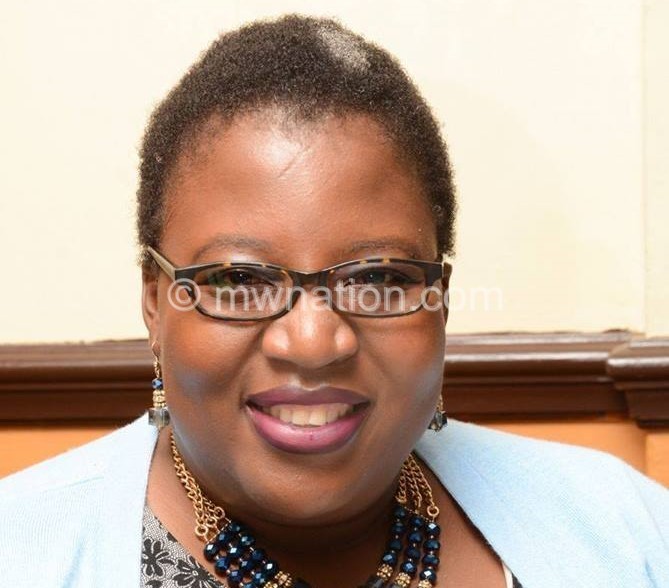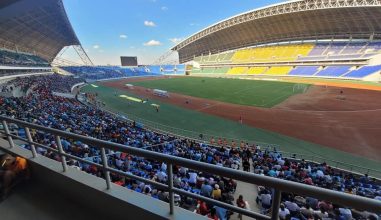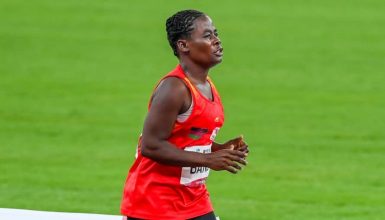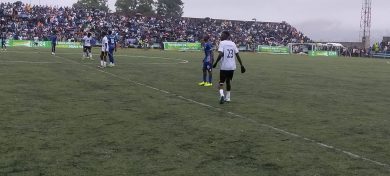Women’s sports body calls for safe policy
Women and Sports in Malawi, a women’s rights in sports organisation, says lack of a government policy on sports and gender poses a challenge in combating abuse of female sports personalities.
The organisation’s chairperson Zione Ntaba, a High Court of Malawi judge, said while they are making strides, government’s delay in formulating a gender and sports policy is a setback.

She said: “We have two lobbying fronts. We have been lobbying at AUSC [African Union Sports Council] Region 5 which is at regional level. AUSC agreed that ministries of Sports in the region should do more in terms of gender and sports policy.
“But none of the ministries of Sports in the region except South Africa, have developed gender and sports policy whereby such policies trickle down to legislation, funding and training at ground level on what is safe sports and dealing with harassment of female sports personalities.”
Ntaba said the organisation, which is affiliated to Malawi National Council of Sports, has tackled issues of harassment through women leadership programmes.
“We have been focusing on dealing with the issue of harassment through women leadership programme. The last cohort, which has just graduated, did have training on how they can approach that and the issue of Asimenye, Tabitha and the others, were given as examples to say look, this is why girls drop out of sports. How do you protect the athletes from the abuse?”
She further said associations also need to be trained on how to deal with harassment of female sports personalities.
“If the associations don’t have training on gender issues and if the sports codes themselves don’t have gender policies, how do they deal with the incidents? When we talk about gender training it’s not just about gender issues, but also being gender responsive.
“How do you respond to issues like what Asimenye and Tabitha have raised? Because you cannot go and strip a person. That’s taking away their privacy. It’s a big human rights violation.”
But Ntaba said government needs to support the fight against abuse of the athletes through a safe sports gender policy.
“Malawi, just like other Region V members, already signed an agreement to have a gender in sports policy. It’s up to government to fulfil this. It shouldn’t take us to remind government on what they already agreed to do to ensure that there is safe sport for women, whether you are a fan, administrator, a player or official. We are planning to have a programme for our policy holders such as ministries of Gender, Sports and Sports Council.
“We keep seeing these abuses on women. If you [government] don’t fund these programmes on sensitising women on what safe sports is and what harassment looks like, how can you ensure that when something happens to a person participating in sports there are structures to report to and not just go home and live with the trauma?”
Sports Council spokesperson Faith Mtonyo-Mlauzi said the council is aware that such abuse happens in sports although it has not received any formal complaint on the matter.
She said: “As a council we have not received any formal complaints on gender-based violence and sexual harassment from any athletes and officials. This is also true with our associations. However, this is not to take away the fact that these malpractices are not happening.
“The lack of reporting may be due to reasons such as lack of policy to guide reporting structures and channels at both council and affiliate levels. This may also be due to fear and lack of sensitisation and empowerment on the part of all those involved in sports.
“As a council, we are aware and we have set in place guidelines to protect our athletes and encourage dialogue on the issue. Currently we are working on a policy which is in the pipeline and on consultation level. We also have some of our affiliates such as the Malawi Olympic Committee having their own policy on gender-based violence and sexual harassment under the umbrella name “Safe Sport”.
She said Sports Council is expected to include safe sport in its policy.
Said Mtonyo Mlauzi: “The council has also included “Safe Sport” as one of the key concentration areas in our programmes. The main ones being the Malawi School Sports Academy Programme and The Youth Sport Exchange Programme. We have particularly placed a lot of emphasis on these two programmes as they deal with minors as well as young coaches.
“We also have our code of conduct which participants in our programmes have to adhere to, failure of which is a punishable offence. It is also good to note that it’s not only athletes that are facing these challenges. Females participating in sport either professionally or recreational are faced with the same dilemma from the general public and various stakeholders. This calls for mindset change from the general public and society as a whole,”
Ministry of Youth and Sports director of sports Jameson Ndalama said the ministry is in the process of formulating gender and national sports policies which will tackle abuse in sports.
He said: “In the gender policy, there are issues of gender and social activities, which includes sports, and it also has strategies to fight women abuse. The National Sports Policy also has a provision on gender and sports, but the focus is on strategies to promote women participation in sports either as athletes or leaders.
“Depending on the issues arising from these reports of abuse and harassment, if presented to the ministry formally, though identity of reporters will not be disclosed, the ministry will assess whether to have a special gender and sports policy or just to include the issues in the revised National Sports Policy.”
In the meantime, Ndalama said the ministry will institute investigations into the alleged cases.
A 2019 research by Plan International in 22 countries established that bullying, harassment and abuse of girls diminishes their potential to achieve greater things.
Plan International Malawi communications and campaigns manager Rogers Siula said the findings prompted them to launch a campaign against cyberbullying of female sports personalities.
He said Plan International campaign called #freetobeonline, focused on cyber bullying after noticing the abuse and harassment of Tabitha and her sister Temwa during the 2019 Cosafa Women’s Championship in South Africa.
Siula said: “There was a lot of body shaming and bullying of Tabitha which is a demoralising factor to the players, their mental health and self-esteem. So, we joined hands with FAM to launch a campaign against this behaviour.”
He said following the opening up of Tabitha and Asimenye, Plan International will now extend its campaign to other forms of abuse.
“We are glad that these girls have decided to open up and tell their story. This just proves our fears that apart from cyberbullying, these girls go through a lot silently. Their opening up will ensure that other girls should not be subjected to such experience. Our campaign will definitely extend to that area,” said Siula.





